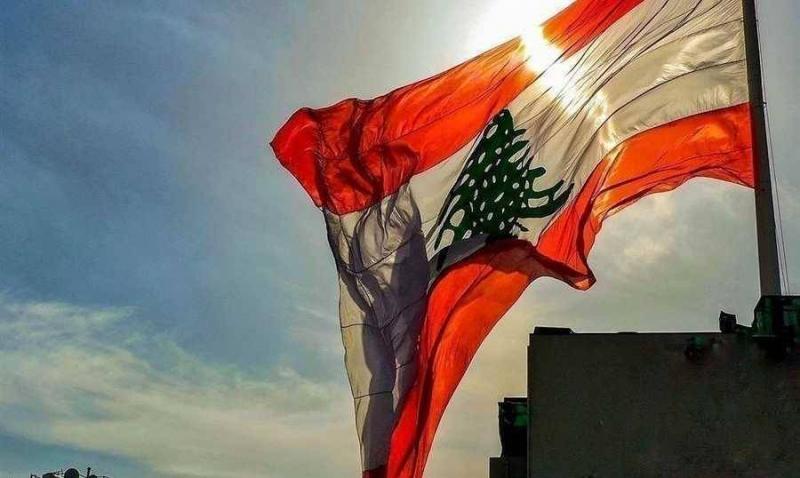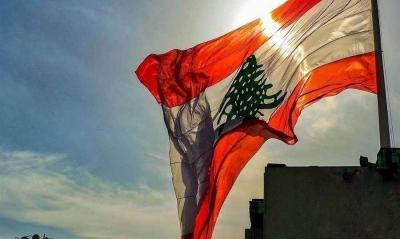The Lebanese people are anxiously holding their hearts, fearing that the internal situation may slip into civil conflict due to the political and sectarian tensions that have accumulated over the years. The abduction and killing of Pascal Suleiman has exacerbated these tensions to dangerous levels, as reported by "Al-Jumhuriya." Some believe that the Lebanese arena currently stands on the edge of a cliff. There is nothing preventing it from experiencing shocks that could lead to disasters, especially since internal worries coincide with another external threat at the southern border. The war in Gaza does not seem likely to end soon, which logically means that the war in southern Lebanon will also continue without any real timeframe for resolution, carrying with it significant political, economic, and security ramifications. Therefore, for the foreseeable future, there is no scope for economic recovery or the possibility of rebuilding the fractured and paralyzed institutions. Moreover, nothing prevents the ongoing confrontations in the south from escalating into a comprehensive war that could destroy what remains of the country's resilient infrastructure.
In the past six months of war, Lebanon has suffered tremendous losses in lives and incurred direct material losses amounting to hundreds of millions of dollars due to the destruction of homes and infrastructure. Added to this are indirect losses in the billions of dollars due to the disruption of economic life in vast areas of Lebanon and the loss of opportunities and tourist seasons that had remained the primary hope to mitigate the severity of the financial crisis. As Lebanon has been striving for years to secure loans worth a few billion dollars from the International Monetary Fund, it is now facing losses that exceed the size of this assistance. In other words, the Gaza war will prevent Lebanon from escaping its financial predicament and will exacerbate its overall decay to frightening levels.
In this atmosphere, the country cannot bear any internal security adventures, such as the recent events in Jbeil or those that occurred in other areas previously, each of which nearly opened the doors to the unknown. The country is currently living through political and sectarian divisions that reach the limit of psychological divorce, amid a near-total breakdown of dialogue among the concerned political leaders. However, one comforting factor following the recent incident is the rhetoric from the Lebanese Forces characterized by the following: “We will not be dragged into reactions that some may be planning to provoke in the country, but we certainly want to reveal the perpetrators, and we rely on transparency in the investigation conducted by state authorities."
Based on this position, the calm exhibited by the family of the Lebanese Forces official and the general party environment was notable. The Lebanese Forces did not initiate accusations against any party for the crime, although they held Hezbollah responsible for the atmosphere of chaos and weaponry. This is their consistent stance, leading some circles to contemplate the possibility of benefiting from this atmosphere of flexibility to build a safety net that would provide the country with guarantees to prevent any shock that could cause civil conflict.
In recent hours, parliamentary circles have discussed a series of ideas that can be considered keys to alleviating the internal situation and establishing the necessary guarantees, the most prominent of which is reopening the door for political dialogue at the leadership level. While the broad form of dialogue, as called for by President Nabih Berri, faces hesitations from some opposition forces, particularly the Lebanese Forces, there are those within parliamentary circles proposing the idea of initiating dialogues between leaders at bilateral levels. This could serve the purpose during this phase.
These circles believe it is possible to rely on enhancing communication channels between President Berri and Dr. Samir Geagea, as a guarantee to prevent any potential shocks on the ground, or to absorb them if they occur. Concurrently, another type of guarantee can be sought from Bkirki, aimed at reassuring the concerned Christian street, particularly regarding efforts to fill the vacancy in the presidency. In this regard, various proposals that would satisfy Bkirki and ensure Christian coverage for the election process could be discussed.
The question raised by parliamentary circles is: Will Christian forces agree to this type of dialogue, or will they also consider it a waste of time and a diversion from the fundamental problem, as is the case with the comprehensive dialogue called for by Berri? Are there intermediaries who could take on a role to bridge distances and open these communication channels? Regardless, parliamentary sources state that the state of psychological divorce among the Lebanese necessitates establishing communication lines, as there are dangerous challenges looming in the Middle East that reflect upon Lebanon and threaten to destabilize it as a state and entity, according to "Al-Jumhuriya."




